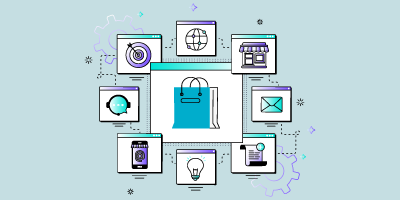If your business is preparing for a Dynamics 365 implementation in 2025, consider these best practices to ensure a smooth transition to the cloud-based ERP.
best practices for a Dynamics 365 implementation
Here are key best practices to ensure a smooth Dynamics 365 implementation in 2025.
Perform a business process review
Understanding where your new Dynamics 365 system will fit in and what it needs to replace will help define your operational, integration, and reporting requirements. This is also a great opportunity to think about optimizing processes through automation or eliminating redundant applications.
Conduct a fit-gap analysis
Involve key stakeholders early
Plan for data migration
Data migration during an ERP implementation involves dealing with a lot of customer and vendor data. So make sure you and your implementation partner have strong data protection and compliance measures in place to secure sensitive information.
Prioritize user acceptance testing and training
It’s also important to plan for user training to ensure all current and new users can familiarize themselves with the Dynamics 365 system and get work done. At GraVoc, we often follow a ‘train-the-trainer’ model where key stakeholders are trained on the system to enable them to continue training other users. This helps boost adoption and create a more long-term training solution as new or external users are added to the system.
Partner with an experienced Dynamics 365 implementation team
For more tips on choosing the right Dynamics 365 consultant, check out our blog post and video, ‘5 Things to Look for in a Microsoft Dynamics 365 Consultant.’
Planning a Dynamics 365 implementation in 2025?
Our experienced ERP consultants have years of experience in implementing Dynamics 365 solutions like Business Central and Finance & Supply Chain Management. Click below to learn more about our Dynamics 365 consulting services or contact us today to get started!
Related articles
Dynamics GP to Business Central Migration: Key Insights from our Webinar
In case you missed our webinar on Dynamics GP to Business Central migration, here are 5 expert insights from our ERP specialist, David Laster!
Dynamics GP End of Support: Compliance Risks You’ll Face After 2029
Here, we go over the tax and security compliance risks of staying on Dynamics GP post the December 2029 end-of-support deadline.
Shopify Connector for Dynamics 365 Business Central: All You Need to Know
In this post, we explore the Shopify connector for Business Central, including benefits and how to get started with the integration!




